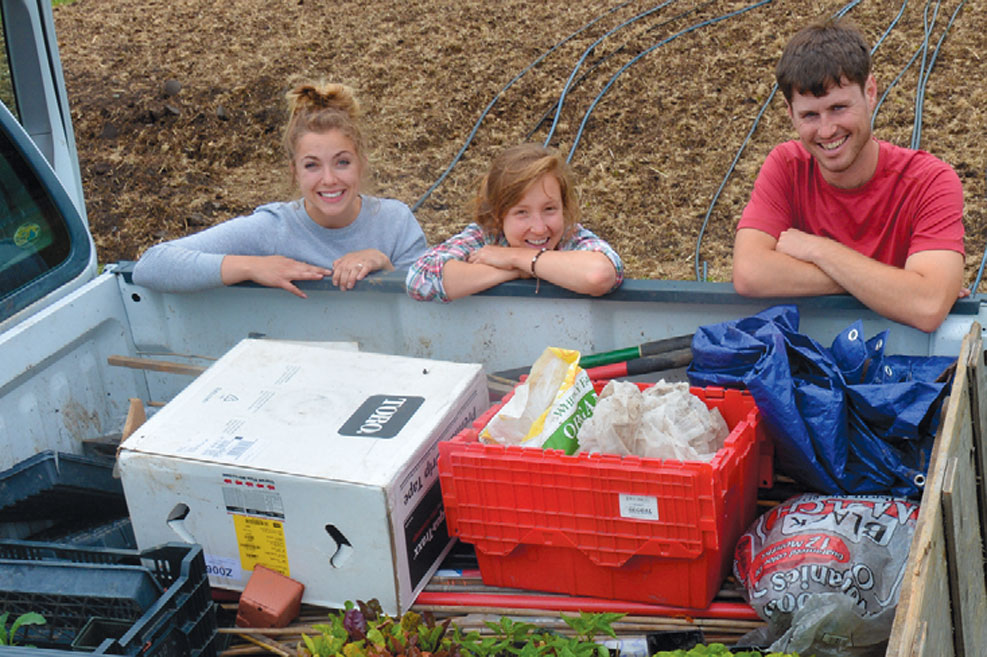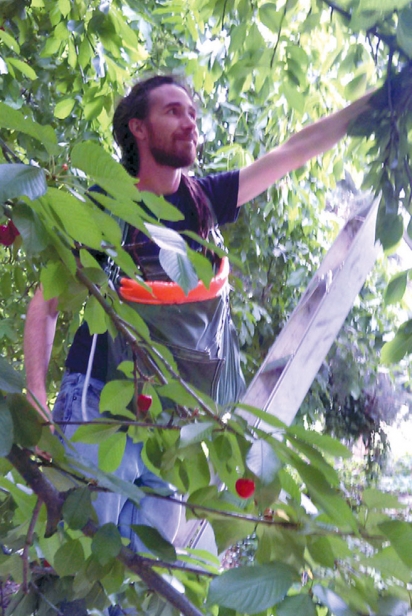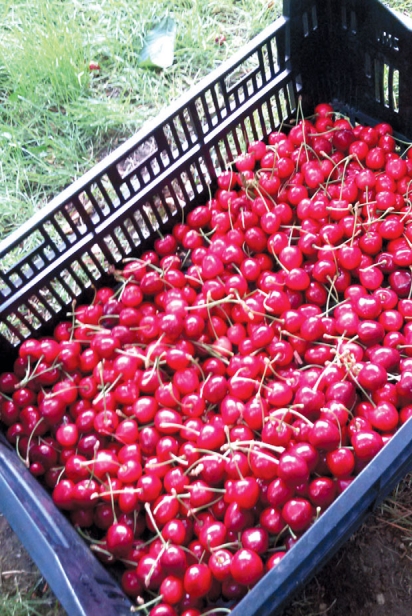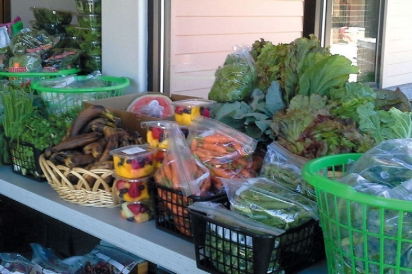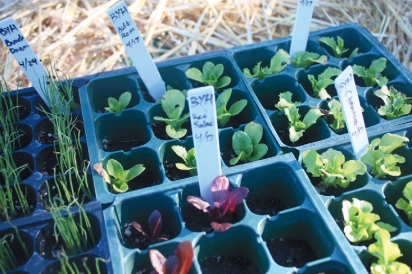Benevolent Bounty: Backyard Harvest Puts Surplus Food Where It’s Needed
We all know that we should eat plenty of fruits and vegetables as part of a healthy diet. Better yet, make them organic and local.
We proudly carry our woven baskets to the farmers market each week and happily fork over $6 for a pint of raspberries, $4 for a pound of tomatoes, $10 here, $6 there until we have enough produce for a few days and our wallet is $50 lighter. We leave feeling good because we’re making good, healthy choices.
But what about the thousands of people in Idaho who can’t afford to shop at farmers markets, the ones whose total weekly grocery budget is $50? Sadly, in the rush for healthy eating, a large part of our population is underserved: minimum-wage families with hungry children, people who can’t work due to disabilities and senior citizens living on Social Security income.
According to the Idaho Department of Health and Welfare, over 230,000 people receive food assistance from the government.
Through a fortuitous gardening accident, Moscow’s Amy Grey came up with a way to address this conundrum. In 2006 Amy’s two young sons were playing in a muddy yard, tossing seeds everywhere. Amy didn’t give their antics much thought until heads of lettuce began popping up across her yard. Hundreds of heads of lettuce. Grey wondered what to do with all the extra produce when inspiration suddenly hit: Why not donate it?
Grey took the extra lettuce to the food bank and found immediate interest for her idea. Historically, food banks haven’t offered fresh produce because it expires quickly.
It made perfect sense. The Palouse is fertile and chock full of growers. People have fruit trees that drop apples to rot on the sidewalks and gardens filled with an overabundance of zucchini that get thrown into compost. Why not collect this perfectly good produce and give it to folks in need?
That’s how, in 2006, Backyard Harvest was born.
Initially the program focused on surplus food items grown by local residents. Donations were made easy: Simply drop the produce off at a designated location, or place it on your porch and call for a pickup. The do-gooding generated so much interest that Backyard Harvest expanded. Their Community Orchard program connects individuals who have untended fruit trees, berry patches or the like with volunteers who glean the fruit when it ripens. The nonprofit also branched out with their Grow for the Greater Good Program, in which local organizations and individuals specifically grow and donate to Backyard Harvest. Since its inception, Backyard Harvest has donated more than 50,000 pounds of fresh produce.
Board member Jessica Bearman has been thrilled with community participation in Moscow.
“The Palouse is a special kind of place. Moscow is especially distinct in our level of community engagement. We are special in that we have a very productive summer growing season, and a lot of people garden and are interested in food. Just walking around town in late July … the amount of fruit on trees is astounding.”
Backyard Harvest also worked in conjunction with the City of Moscow to make it possible to use federally funded food assistance “SNAP” payments at the Moscow Farmers Market and the weekly Growers Market. Bearman says that the City of Moscow was in the first wave of communities across the nation to make this change. Allowing SNAP payments at these local events put $20,000 in the pockets of Moscow area farmers in 2014.
Thanks to a happy accident, a burst of inspiration and the sweat of volunteer labor, Moscow residents in need now have access to fresh, healthy produce. And, adds Bearman, Backyard Harvest is happy to help any community get organized with its own harvest program.
Resources
There are numerous nonprofits throughout Idaho that provide meals to those in need. Below is a list of organizations that focus not only on providing services but are also involved with growing/harvesting produce.
Idaho Food Bank
Boise, Pocatello, Lewiston
idahofoodbank.org/give/food
Idaho Hunters Feeding the Hungry
Jerome
ihfh.org
Backyard Harvest
Moscow
backyardharvest.org
Hunger Coalition
Bellevue
thehungercoalition.org
Community Roots
Coeur d’Alene
kealliance.org/community-roots
Global Gardens
Boise
idahorefugees.org/home/global_gardens
Project Hope
Spokane
projecthopespokane.org/our-story
Mina Ashkannejhad handles marketing for a software startup in Moscow. While admittedly not a cook or gardener, she loves good food and supporting the local gastronomy industry.


